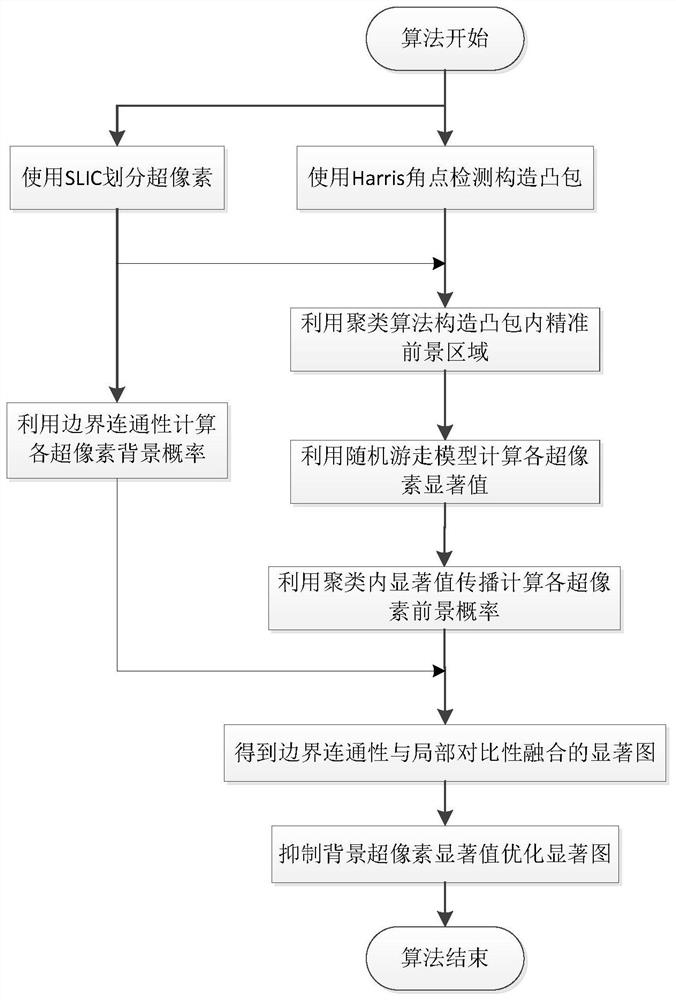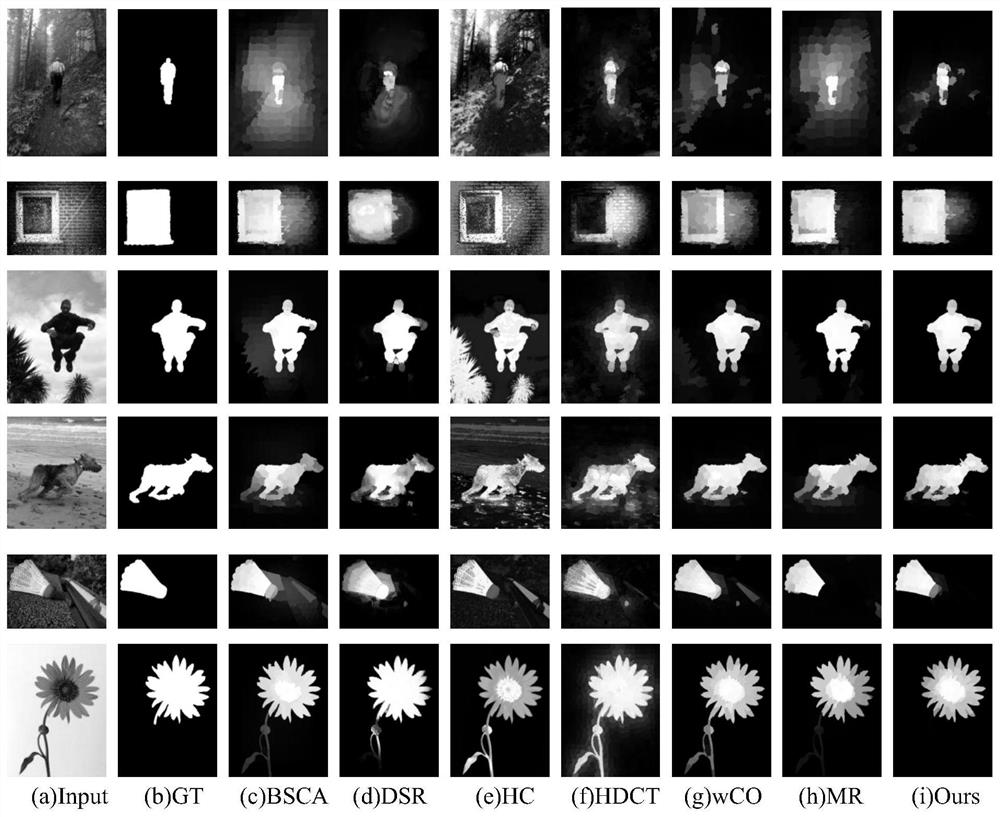A Saliency Detection Method Combining Boundary Connectivity and Local Contrast
A detection method and connectivity technology, applied in the field of image processing, can solve problems such as unsatisfactory results
- Summary
- Abstract
- Description
- Claims
- Application Information
AI Technical Summary
Problems solved by technology
Method used
Image
Examples
Embodiment 1
[0067] The present invention tests the proposed algorithm on three standard databases: the ECSSD database, which contains 1000 pictures of different sizes and with multiple objects, some of which are taken from the very difficult Berkeley 300 database. The MSRA10K database, which is an extension of the MSRA database, contains 10,000 images, covering all 1,000 images in the ASD dataset, including many complex background images. DUT-OMRON database, which contains 5168 pictures, contains pixel-level ground-truth annotations, the picture background is complex, and the target size is different, which is very challenging. All three databases have corresponding manually calibrated saliency region maps.
[0068] figure 1 It is a schematic flow sheet of the method of the present invention; figure 2 It is a comparison chart of the saliency detection results of the present invention and other different algorithms. The concrete steps that realize the present invention are:
[0069] I...
PUM
 Login to View More
Login to View More Abstract
Description
Claims
Application Information
 Login to View More
Login to View More - R&D
- Intellectual Property
- Life Sciences
- Materials
- Tech Scout
- Unparalleled Data Quality
- Higher Quality Content
- 60% Fewer Hallucinations
Browse by: Latest US Patents, China's latest patents, Technical Efficacy Thesaurus, Application Domain, Technology Topic, Popular Technical Reports.
© 2025 PatSnap. All rights reserved.Legal|Privacy policy|Modern Slavery Act Transparency Statement|Sitemap|About US| Contact US: help@patsnap.com



